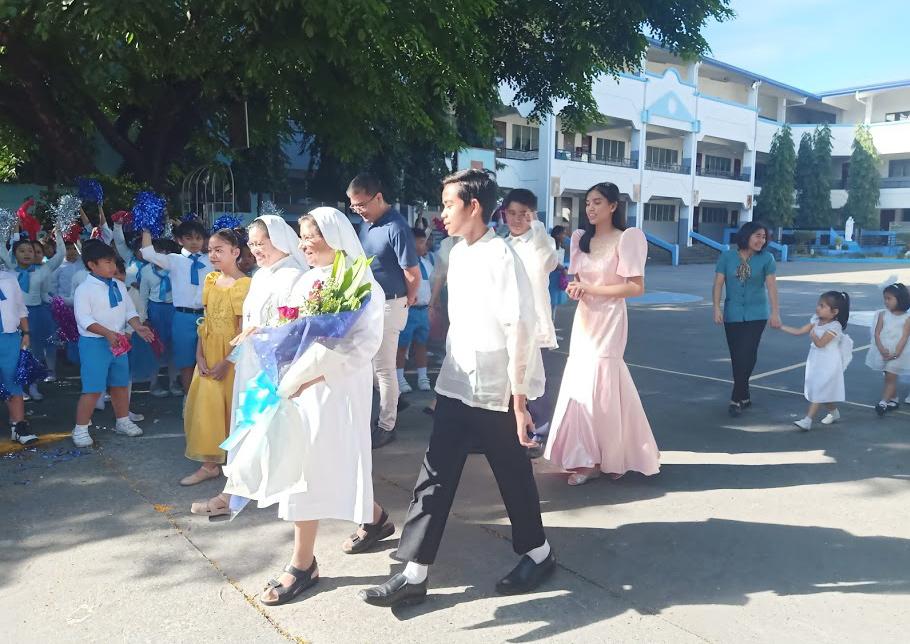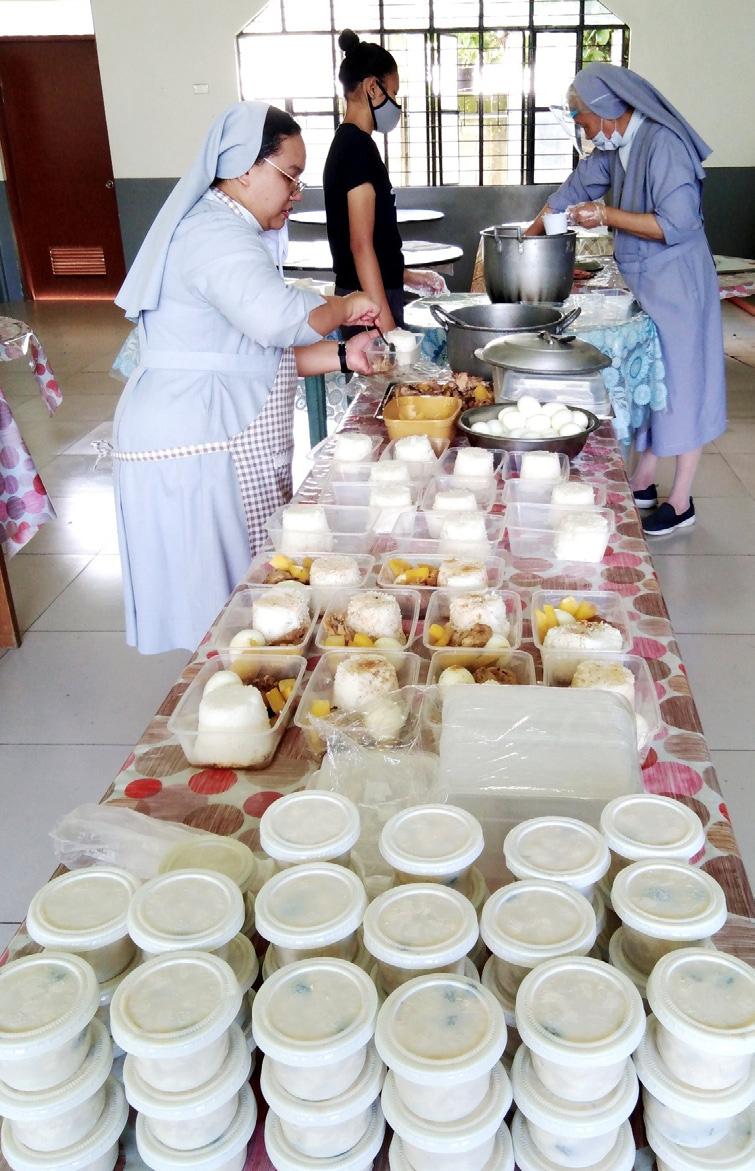
3 minute read
The Oratorian Heart in the New
The Oratorian Heart in the New Normal
Despite the difficulties and limitations due to the pandemic, the FMA communities strive to find opportunities to continue their educative mission to the poor.
Advertisement
The 16 Oratory Youth Centers (OYCs) of the FMA Philippine Province cater to young people of the lower economic classes. A majority of the FMA settings animate their oratory youth center/s, be it in urban areas such as in Manila and Cebu, in rural places such as in Laguna and Negros Occidental, or indigenous people territories in Pampanga. Each center caters to hundreds of poor young people and their families. They have gone online to reach the young people and mothers' clubs.
Each community sought out, explored, and availed of opportunities opened to them, depending on the possibilities. In some communities, such as the Provincial House in Manila, "good day” talks and simplified catechesis are sent via SMS or MMS to mobile phones through Facebook Messenger. One hundred thirty-seven (137) families of the Vicuñans and the Mothers’ Club can access even if they have no wifi connection or mobile data. With a little financial aid for internet access, they can have recollections and webinars via the Zoom platform. Activities that the entire family can participate in are also realized via the said means, sometimes enabling participants to win prizes that bring food to their tables.
Other communities such as Mary Help of Christians - Pampanga can reach a maximum of 20 families via FB Messenger, Pius can reach 28 youths, Mary Help of Christians - Laguna can reach 35 oratorians from their three oratory centers. Other OYCs such as the Aspirantate, Don Bosco - Manila, and the Novitiate also use the FB messenger and group chats.
The OYCs also distribute food packs and other goods from time to time, courtesy of various local and international donors, to supplement the families’ dwindling finances, since many of their breadwinners have lost their jobs. The oratory center in the Provincial House has helped some mothers to start selling vegetables to augment their family income.
The FMA animators of other oratory youth centers where the young people have more means to internet access like the center in Don Bosco - Manila use Facebook pages and go live for catechesis and various activities and contests that draw the ingenuity and creativity of the youth. They tap youth leaders, parent volunteers, and the mothers of the centers to animate the online programs and even celebrate various feasts, such as the Nativity of our Blessed Mother Mary. There are 50 live views for their videos. The community of the Aspirantate also prepares creative online oratory via FB live with around 50 live views. The Mary Help of Christians communities in Canlubang (Laguna) and Cebu created FB accounts that their young people access whenever possible. Approximately 150 oratorians can access the Mary Help of Christians - Laguna Oratory FB account.
Access to the digital world is not possible for all. This pandemic has also brought this reality of the digital divide in the country. Not all oratorians have gadgets: laptops, tablets, or smart/mobile phones, much less the money to pay for data or wifi access. Thus, some FMA who minister to young people belonging to the poorest sectors, such as the St. John Bosco Community in Paco, Manila, has secured permits from the local government and risks going out to meet the young in short encounters. They can evangelize and respond to their basic needs according to the possibilities. The catechists in the Lourdes Parish in Punta Princesa, Cebu City, also do the same thing every week. The FMA Novitiate community prepares a weekly self-guided catechetical module per grade level. They send these to 80 families of oratorians. These were divided into four groups of 20 with a parent animator and three youth leaders to follow them up.
Animators of oratory youth centers in the different FMA communities open themselves to various possibilities to reach the young in this new normal. They take time to brainstorm, plan, and network, maximizing all the resources available, including time and energy, despite other responsibilities, which also need to adapt and be fruitful in the new normal.
The pandemic has caught everyone by surprise. The educating communities are gradually learning how to navigate it, not just to survive it, but even more, to thrive in it while continuously generating life and vitality.


By Sr. Mariel Riceani De Mata, FMA









